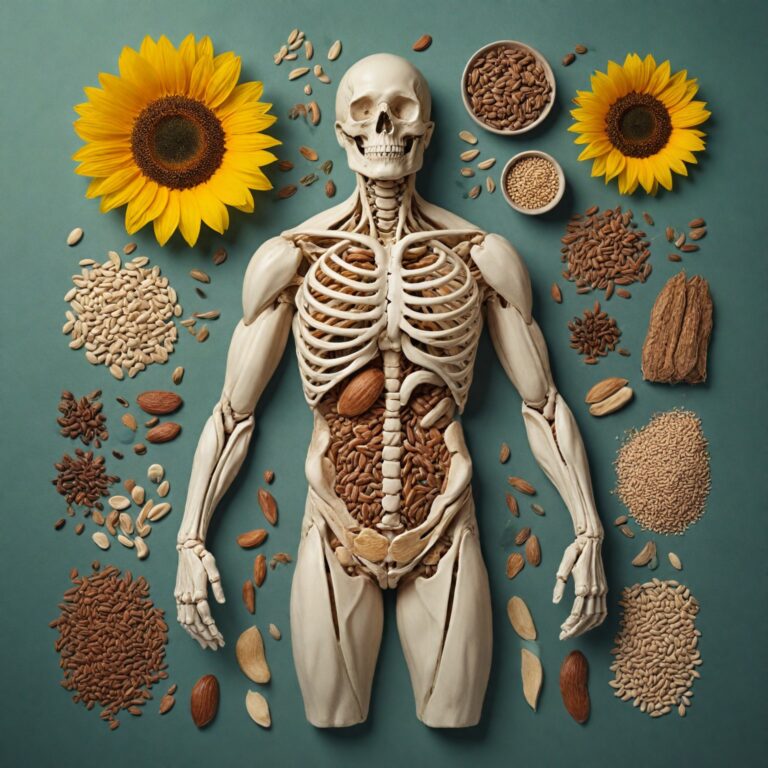The power of sunflower seeds lies in their incredible nutritional value and wide range of health benefits. These small seeds are packed with essential vitamins, minerals, and healthy fats that support heart health, improve skin, and boost the immune system. Whether you’re looking for a nutritious snack or an easy way to enhance your diet, sunflower seeds are an excellent choice for overall well-being.
Nutritional Profile of Sunflower Seeds
When it comes to nutrition, sunflower seeds are a rich source of several important nutrients, making them a perfect addition to a balanced diet:
- Vitamin E: A powerful antioxidant that helps protect cells and supports skin health.
- Magnesium: Essential for muscle relaxation, heart health, and improving sleep.
- Healthy Fats: They contain omega-6 fatty acids, which support cardiovascular health by reducing cholesterol levels.
- Protein: A great plant-based source of protein, ideal for vegans and vegetarians.
To discover how to grow your own sunflowers and ensure you always have fresh seeds, check out this complete guide to growing sunflowers from seeds.
The Role of Healthy Fats in Sunflower Seeds
The polyunsaturated fats in sunflower seeds, specifically omega-6 fatty acids, play a crucial role in maintaining heart health. These healthy fats help lower LDL cholesterol (the “bad” cholesterol), reducing the risk of cardiovascular disease. Studies have shown that a diet rich in healthy fats like those found in sunflower seeds can promote better heart function and reduce the risk of heart disease.
Additionally, sunflower seeds contain phytosterols, which help reduce cholesterol absorption in the digestive system, further supporting cardiovascular health. For more information on how sunflower seeds can improve your heart health, check out this resource from the Sunflower Association.
Key Health Benefits of Sunflower Seeds
Here are the key health benefits of regularly incorporating sunflower seeds into your diet:
- Heart Health: Lowering LDL cholesterol and reducing the risk of cardiovascular disease.
- Immune Boost: Packed with selenium and zinc, sunflower seeds strengthen the immune system.
- Improves Skin Health: The high vitamin E content helps protect your skin from oxidative damage, making it more radiant.
- Blood Sugar Regulation: The fiber and healthy fats in sunflower seeds can help stabilize blood sugar levels.
For more information on how to cultivate a variety of seeds, visit the ultimate guide to growing a wide range of plants, which will teach you more about growing nutrient-rich seeds like sunflowers.
FAQs About Sunflower Seeds
Are sunflower seeds safe for everyone?
Generally, yes. However, people with seed allergies or those needing to monitor calorie intake should exercise caution.
How much sunflower seeds should I eat daily?
A recommended serving is about 1 ounce (28 grams), which provides all the nutrients without excess calories.
Are roasted or raw sunflower seeds better?
Both provide benefits, but raw seeds retain more nutrients. Roasting can cause some nutrient loss, but it also enhances flavor.
Conclusion: Harness the Power of Sunflower Seeds
Sunflower seeds are more than just a snack—they are a nutritional powerhouse that can enhance your diet and improve your overall health. Whether you enjoy them raw or roasted, these seeds offer numerous benefits, from supporting heart health to improving skin quality. By incorporating them into your meals or snacks, you can unlock their full potential.
For more tips on growing your own sunflower seeds or enhancing your gardening experience, visit the comprehensive guides on sustainable gardening techniques that will help you create a thriving
